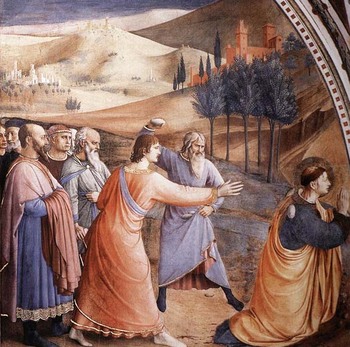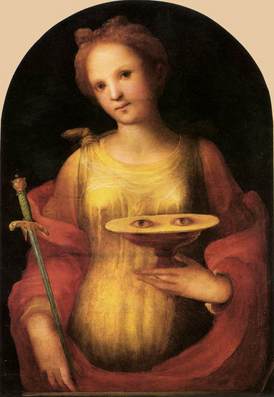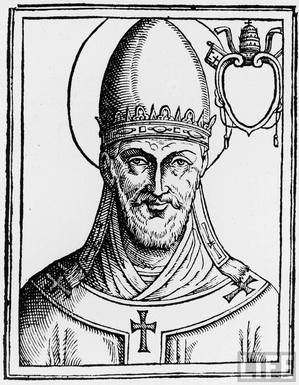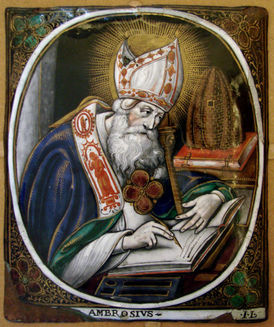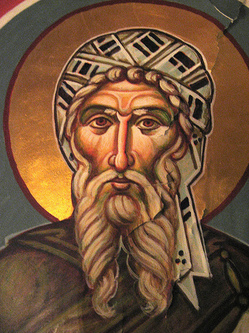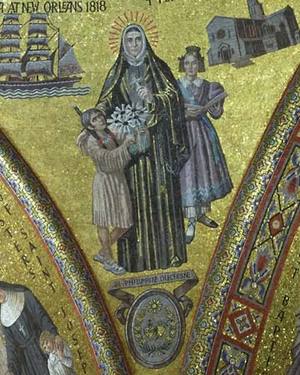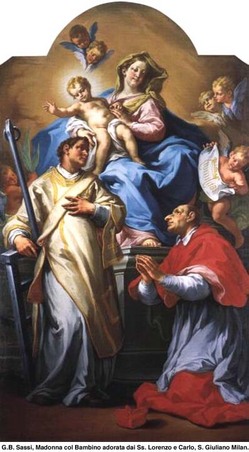Saint John, Saint John was Christ’s disciple,
and Evangelist also;
He for the sake of Jesus Christ
Much pains did undergo,
Because he loved our Saviour Christ,
As Holy Scriptures say,
And was belov’d of him also,
And in his bosom lay.
Chorus
Saint John for love of our Saviour
Did undergo much pain
And never ceased during life
To preach Christ Jesus’ name.
Saint John, he at Jerusalem
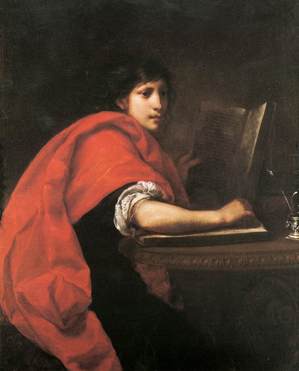 Did preach God’s holy word,
Did preach God’s holy word,
And for the same the spiteful pagans
They did him cruel scourge.
Then did he for the same rejoice,
That he was counted worthy
To suffer for the sake of Christ,
And would him not deny.
To Patmos banish’d was Saint John,
As Scripture doth record,
For the testimony of Christ,
And his most holy word.
And as he was in the Spirit
On the Lord’s blessed day,
Our Saviour by an Angel spake,
and unto him did say,
I am Alpha and Omega,
Which was and is to come;
And what thou seest write in a book
Thus said he to Saint John
And send it to the Churches then,
Which are in Asia seven.
And said the Angel to Saint John,
Which came to him from Heaven.
Continue reading Saint John the Evangelist (the Beloved Disciple)
